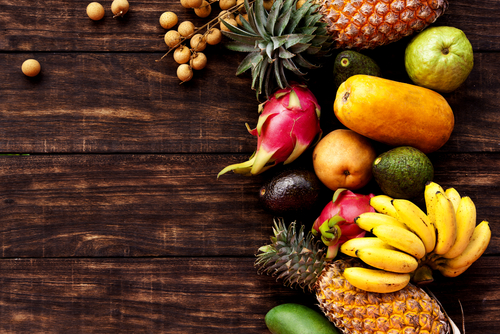Do not store these foods in the fridge
Our first instinct when it comes to fresh food is to store them in the fridge so it stays fresh longer. But that is not always the case. Certain foods can lose their flavours, colours or textures due to the cold temperature and are best stored outside of the fridge.
Here is a list of foods you should not refrigerate when you bring them home from the market.
Fruits
-
- Apples & Pears– Refrigerating apples & pears can cause them to lose their flavour and texture. Fresh apples & pears store well for a couple of pretty and make your counter look pretty. If you won’t be eating them in that time, they might last a little bit longer in the fridge minus the flavours & textures.
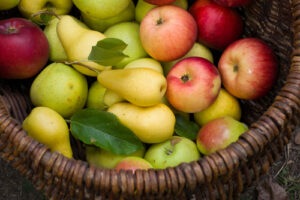
-
- Avocados – For the best creamy texture and flavour, avocados should be stored and eaten at room temp. But if you cut one open and only use one half, keep the other unused half in the fridge for optimal freshness.
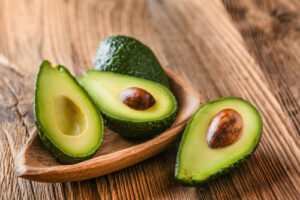
-
- Bananas – Bananas and their less-sweet cousins, plantains, hate the cold. They will not ripen in the fridge, and the cold will turn their skins brown prematurely.
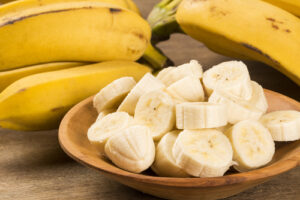
-
- Berries – Fresh berries taste better at room temperature.The cold temperatures take away from the sweet natural flavors of the berries that we know and love.
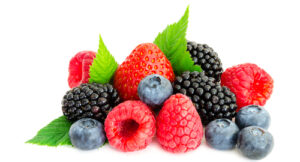
-
- Citrus Fruits – For the tangy flavor, store oranges, lemons, and limes at room temperature on your kitchen counter. Just be careful not to bunch them all up too closely, or they’ll mold. Refrigerating citrus will dry out the fruits, diminishing their juiciness.

-
- Melons – Keep whole melons like watermelon, cantaloupe and honeydew on the counter for best flavour. Watermelon, cantaloupe, and honeydew are all filled to the brim with antioxidants. To preserve these health-protective nutrients, store melons whole as opposed to sliced on your kitchen counter. Chilly air will break down their delicate antioxidants.
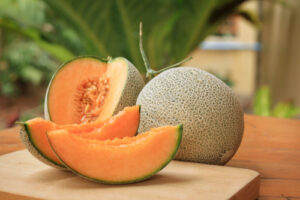
-
- Tropical fruit – There’s a reason tropical fruit like kiwis, papaya, mangos, and pineapples grow in warmer climates. They hate the cold, and they’re all foods that don’t need refrigeration. If you won’t get around to eating your fruit within two or three days of taking it home, slice it up, place it in an airtight container, and pop it in the freezer, where it will remain fresh for up to a year.

Vegetables
-
- Onion & Garlic – Onions & garlic hate refrigerators, the high humidity tends to make them soft or rubbery and encourages them to sprout and/or mold.
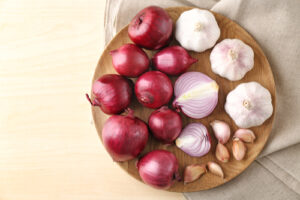
-
- Potatoes & sweet potatoes – Temperatures below about 45°F will make potatoes turn unpleasantly sweet and gritty. Store them in a dark place so they won’t turn green. They need high humidity to stay firm and plump, so a plastic bag inside a paper bag is a good option.

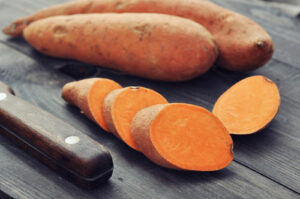
-
- Tomatoes – The texture of tomatoes can be hit or miss depending on how one stores them. If you put tomatoes in the fridge, they can become mealy and lose their flavor. Instead, store them on the counter at room temperature for 1-2 days, but keep them out any longer than that and they might go bad.

-
- Soft herbs – Herbs such as coriander, basil, parsley begins to wilt when stored in colder temperature. So to make them stay fresh for longer you must put them in a small vase of water.
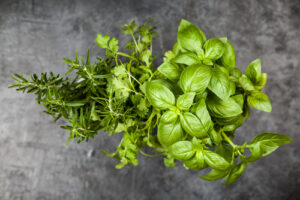
Breakfast essentials
-
- Eggs – Fresh, clean eggs from your own hens or a local farmer’s hens can be stored safely on your kitchen counter for a week or two. In fact, keeping fresh eggs at room temperature for a few days before cooking will make them much easier to peel when hard-boiled. Dirty or cracked eggs should be refrigerated and used as soon as possible. Once eggs have been refrigerated, they should be kept refrigerated until you are ready to use them.

-
- Peanut butter – Store your jar of peanut butter in a cool and dark place for up to three months. It tastes best and is spreadable in room temperature. However, if you wish to extend it’s shelf life you could store in the refrigerator.

-
- Bread – Bread tends to get stale in the fridge. Keep bread that you will eat within a few days in a cool, dry place, and slice it only when you’re ready to eat. For longer storage, either dry it for bread crumbs or slice it, place it in an airtight container, and freeze it. Remove only as much as you need at a time, and thaw it slowly and completely before eating or toasting to enjoy optimal flavor and texture.

-
- Cereal – The moisture in there will cause the cereal to wilt and become much less crunchy. Cereal should be stored in a cool dry place – a cupboard.

-
- Honey – Honey is a versatile natural sweetener, with a seemingly never-ending shelf life. But it should never be stored in the fridge. The colder temperatures alter the chemical makeup of honey and cause it to crystallize and seize up.
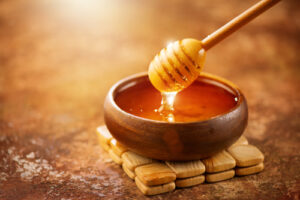
Condiments
-
- Hot sauce, Soy sauce, Ketchup – Salt prevents the growth of food spoilage organisms, so there’s no need to refrigerate salty condiments.
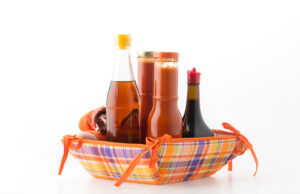
-
- Pickles – Like salty condiments, pickles do just fine outside the fridge. The sodium-filled water they spend their lives in acts as a natural preservative.




